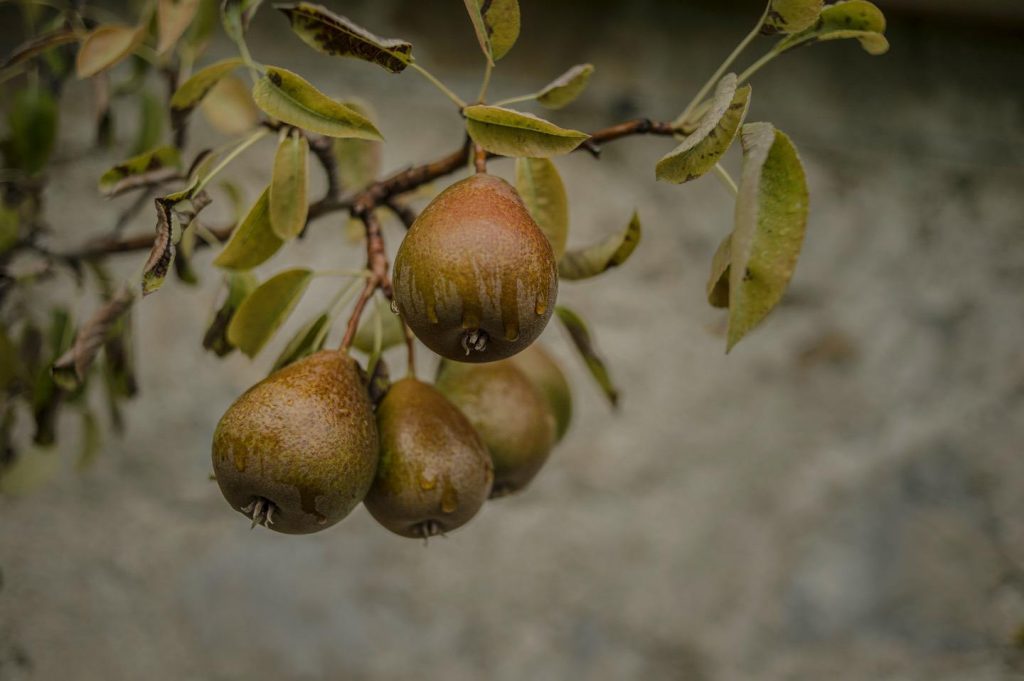
Trees play an important role in the Scripture. From the tree of the knowledge of good and evil in Genesis, to the palm trees of Elim, the cedars of Lebanon, and the rows of the tree of life in Revelation – trees are majestic living parts of creation – past, present and future. From Scripture we learn that trees are meant to be God-given useful blessings to God’s children. And in Scripture, they are also sometimes used as metaphors – because like people, a tree has both life and purpose.
Both Assyria and Egypt are likened to trees in Ezekiel 31. Nebuchadnezzar, king of Babylon, is seen as a tree in Daniel 4. Israel is an olive tree in Hosea 14. The righteous anointed are olive trees in Zechariah 4. In Psalm 1, the godly man is likened to a fruitful tree, “He is like a tree planted by streams of water, which yields its fruit in season and whose leaf does not wither. Whatever he does prospers.” Scripture notes that Godly people are a blessing to all who encounter them, just as a good fruitful tree is to all those who come across it.
Of course, not all trees produce fruit that is helpful to others. Some produce fruit that has poisonous seeds. Some produce fruit that is inedible altogether. Every tree is useful, but not every tree is useful for food. From a distance it is very hard to tell if a particular tree will be helpful to you in your present need. It is only as you get closer that you can recognize if it’ll be useful to you for food or not.
Some are not helpful for food, but are helpful for shade. Some are helpful for neither, but yet produce wood that is long lasting and particularly useful for structures or furniture. Yet others are covered in thorns, and some are largely useless for anything other than firewood. Jesus used the metaphor of such trees to warn His followers about following false prophets, “By their fruit you will recognize them. Do people pick grapes from thornbushes, or figs from thistles? Likewise every good tree bears good fruit, but a bad tree bears bad fruit. A good tree cannot bear bad fruit, and a bad tree cannot bear good fruit. Every tree that does not bear good fruit is cut down and thrown into the fire. Thus, by their fruit you will recognize them.”
Those who study trees can tell them apart just by looking at their shape from afar. The rest of us have to get a bit closer to see what kind of tree it is, but even the most uneducated child can tell the difference between a thornbush and a grapevine, and even those of us who’ve never seen a fig tree can know that it is a fig tree when we see figs on it.
So it is with people. This is a spiritual truth that cannot be avoided. People can be recognized by their fruit. Those who are given over to selfishness and unkindness leave a trail of hurt behind them. People who are given over to God’s love and His purposes leave a trail of blessing behind them. The godly can say with David, “Surely goodness and love will follow me all the days of my life.” The ungodly cannot say that – the fruit that they’ve produced is unkind, foul and reeks of uncleanness. Any who get close can perceive these things, and determine what kind of person they are dealing with.
Jesus means to teach His followers this highly practical truth. Those who purpose to follow anyone – political leaders, business leaders, social influencers and especially teachers of God’s Word – do well to look into whom they are following. Look at the fruit they’ve left behind. Listen to those who sat under their teaching in the past. Consider the long term reputation they’ve gained for themselves among others in their field. Are they about blessing those who come to them, or are they about taking from those who come to them? Those who’ve consistently yielded good fruit may not be the biggest or the most impressive when viewed from a distance, but they are worth following. Those who’ve consistently yielded bad fruit must be avoided, even if large crowds follow them.
A generous man will prosper; he who refreshes others will himself be refreshed.
Solomon (from Proverbs 11:25)
APPLICATION: Intentionality
What does the trail you’ve left behind you look like? Is it full of goodness and blessing, or have you left something else as a legacy?

